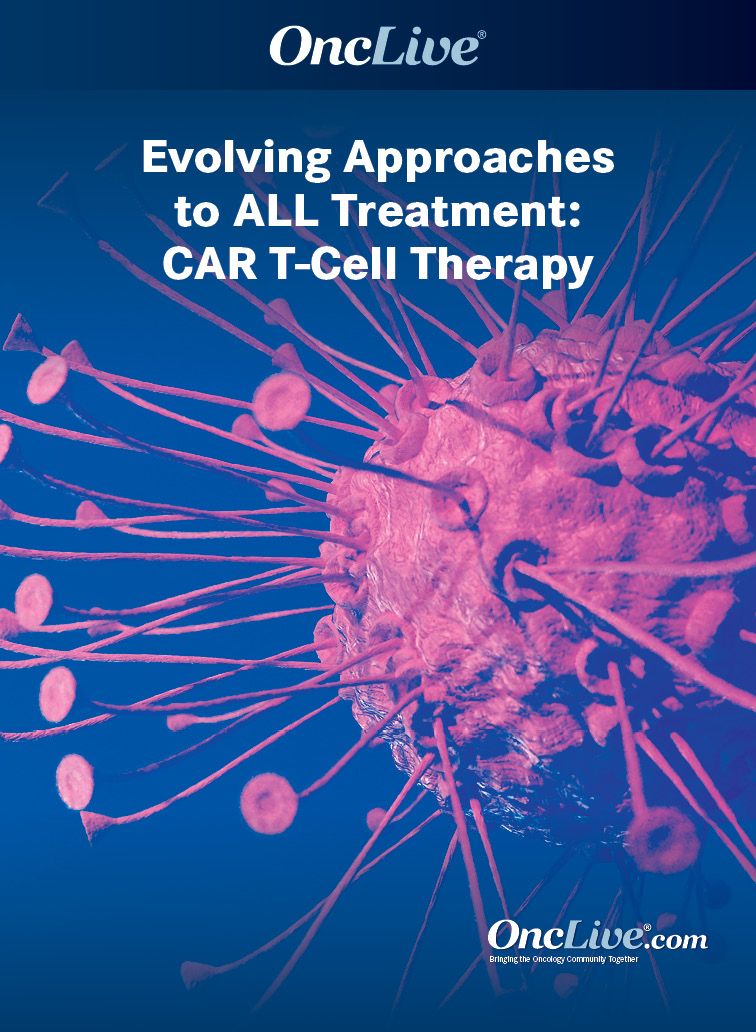Dr. Barba on the Safety of Obecabtagene Autoleucel in Relapsed/Refractory B-ALL
Pere Barba, MD, PhD, discusses the safety of obecabtagene autoleucel in patients with relapsed or refractory B-cell acute lymphoblastic leukemia.
Pere Barba, MD, PhD, a member of the Hematology Department at Hospital Universitari Vall d'Hebron and the Vall d’Hebron Institute of Oncology in Barcelona, Spain, discusses the safety of obecabtagene autoleucel (obe-cel; formerly AUTO1) in patients with relapsed or refractory B-cell acute lymphoblastic leukemia (ALL).
Obe-cel, a CD19-targeted CAR T-cell therapy, was previously evaluated in the phase 1 ALLCAR19 trial (NCT02935257) in patients with select B-cell malignancies. The safety and efficacy of the agent is under further exploration in patients with ALL as part of the phase 1/2 FELIX trial (NCT04404660).
Data from ALLCAR19 showed that obe-cel demonstrated a strong safety profile with promising efficacy, Barba says. Specifically, the event-free survival rates achieved by patients who received obe-cel were 68.3% (95% CI, 42.4%-84.4%) at 6 months and 48.3% (95% CI, 23.1%-69.7%) at 12 months per morphologic relapse criteria. Eighty-five percent (95% CI, 62.1%-96.7%) of patients who responded to treatment (n = 20) achieved a minimal residual disease (MRD)–negative complete response (CR) at month 1, and 70% (95% CI, 45.7%-88.1%) experienced an ongoing MRD-negative CR at month 3. Notably, no instances of grade 3 or higher cytokine release syndrome (CRS) were reported.
Safety has been a major challenge in the development of options for patients with this disease, Barba says. Poor toxicity profiles have prevented some products from advancing further in the developmental pipeline, Barba notes. Obe-cel resulted in high remission rates with a tolerable safety profile providing the rationale for further exploration, Barba concludes.




